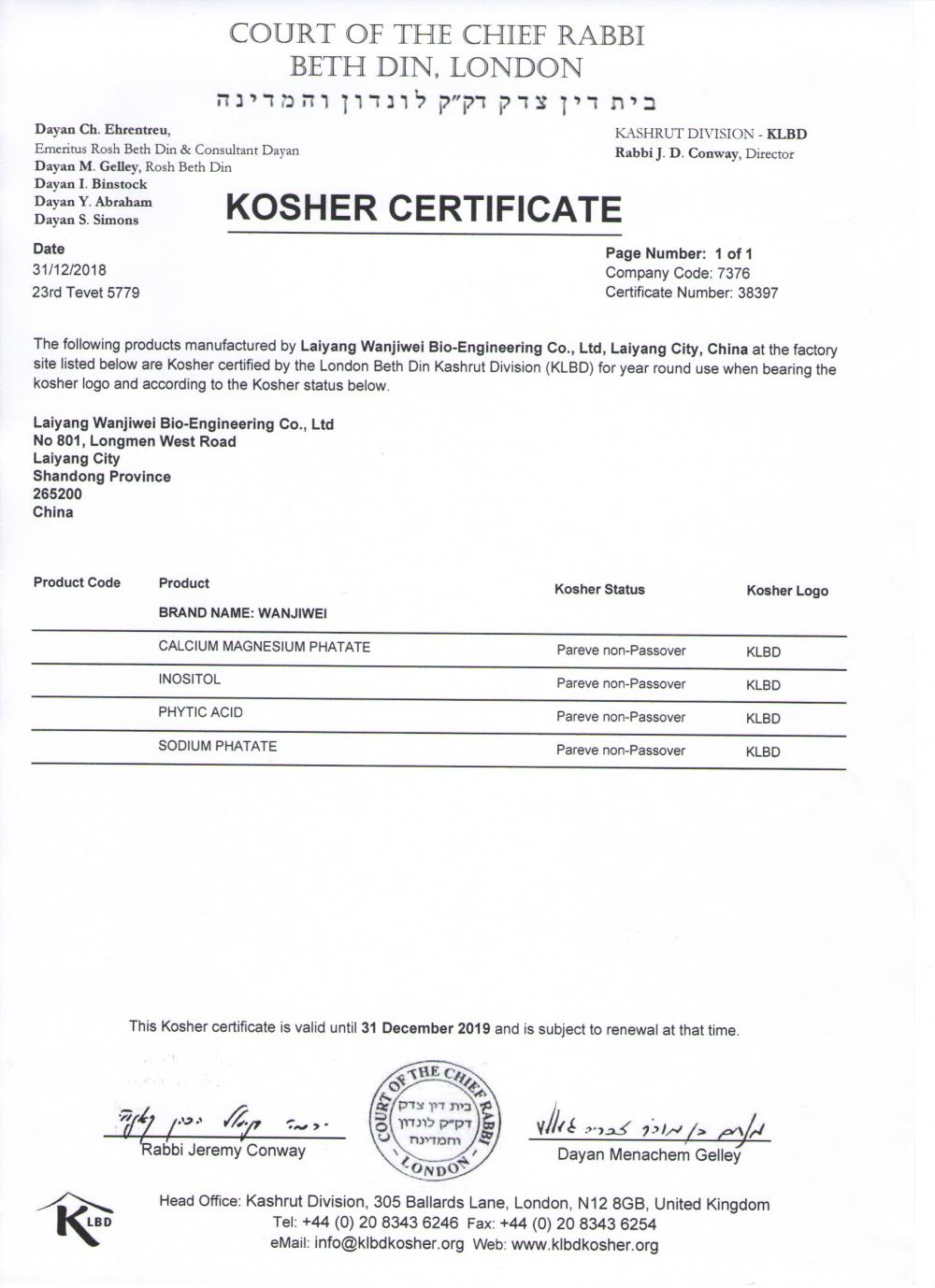
Privacy statement: Your privacy is very important to Us. Our company promises not to disclose your personal information to any external company with out your explicit permission.
Vitamin B, formerly known as vitamin B, is also a generic name for the B vitamins, and they often come from the same food sources such as yeast and others. One of the water-soluble vitamins. Eat more vitamins can not only supplement the lack of nutrients in the body can also ease depression, tension, leading to coping with the pressure of the recession, the following Xiao Bian came to briefly introduce the specific effects and role of vitamin B for everyone.

The role of vitamin B
There are more than a dozen vitamin B family members. There are nine kinds of human essential vitamins that are universally recognized in the world. All of them are water-soluble vitamins. The retention time in the body is only a few hours and must be supplemented daily. B is an essential nutrient for all human tissues and it is the key to food's release of energy. All are coenzymes involved in the metabolism of sugar, protein and fat in the body and are therefore listed as a family. All vitamin B must play a role at the same time, abbreviated as the fusion of UB. If you want to ingest a certain kind of VB, because the activity of the cells increases, so that the demand for other VBs increases, so the role of various VBs complement each other, the so-called "barrel principle." Dr. Roger Williams pointed out that all cells have exactly the same requirements for VB.
B vitamins closely related to skin care include B1.B2.B3.B5.B6 and H and the like. Vitamin B1, also known as thiamine, can inhibit cholinesterase activity, reduce skin inflammation, and prevent seborrheic dermatitis, eczema, improve skin health. Mainly from cereals, fresh vegetables, fruits, milk, egg yolk, lean meat, liver, yeast, bran, peanuts and so on. Vitamin B2, also known as riboflavin, is involved in the redox reaction of cells. The synthesis of hemoglobin and the metabolism of sugar, protein, and fat can help the skin resist the damage of sunlight and promote cell regeneration. In the absence of vitamin B2 in the body, the skin is sensitive to sunlight, prone to solar dermatitis, sunburned for a long time, redness and itching of the face, and powdery appearance around the nose. Mainly from egg yolk, milk, yeast, green leafy vegetables, rice bran, germ, animal liver and kidney, carrot, brewing yeast, fish, orange, tangerine, orange and so on.
Vitamin B3, also known as niacin, inhibits the formation of melanin in the skin and prevents rough skin. Helps recover damaged cells or skin. It plays an important role in maintaining the integrity of normal tissues, especially the skin, digestive tract, and nervous system. Vitamin B6 is closely related to skin health and is part of the molecular structure of many enzymes and auxiliary enzymes. Promote the metabolism of amino acids to keep the skin healthy, reduce capillary wall permeability and hyaluronidase activity, reduce allergic reactions, inflammatory reactions, and promote epithelial cell growth.
It can be used to control rough skin, acne, sunburn, itching and sun tanning. It can also be used to prevent seborrheic skin inflammation, general acne, dry seborrheic dermatitis, eczema and chipping skin changes. Mainly from the liver, egg yolk, grains, germ, beans, milk, fish, meat, vegetables. Vitamin H, also known as biotin, promotes skin metabolism, improves rough skin, prevents hair loss, seborrheic dermatitis, and polymorphous acne (acne). Exist in the liver, egg yolk, milk, yeast and other foods.
The most frequent members of the large vitamin B family are B1.B2.B3 (niacin), B5 (pantothenic acid), B6.B9 (folic acid) B12 (cobalamin). Their role is described below.

It is the most critical substance in the process of sugar metabolism. The energy needed by the body's muscles and nerves is mainly provided by sugar, so it is most susceptible. Adequate VB, so that the nerve cells are full of energy, can ease anxiety, tension, increase the endurance of noise; the other hand, leading to the decline in the ability to stress, and even lead to neuritis. Heart function is affected by the deposition of pyruvic acid and lactic acid. Gastrointestinal spasm lacks energy, peristalsis, weakness, digestion, and constipation. In severe cases it can cause beriberi. Physical weakness - fatigue - irritability, depression - constipation - neuritis - heartache - heart failure - edema. It is understood that in 1897 Dutch doctors discovered that consumption of polished rice can cause beriberi. Mainly because of the lack of vitamin B1, B1 is also called anti-beriberi vitamin.
It is closely related to the metabolism of sugar, protein and fat. Maintain and improve the health of epithelial tissues such as the epithelium of the eye and the mucous membranes of the digestive tract. When there is a serious lack of vision fatigue, corneal congestion, angular cheilitis and so on.
Doctors often ask patients to take riboflavin, which is B2, when they are suffering from cheilitis.
Poor fat metabolism can cause seborrheic dermatitis, acne, acne, vitamin B supplementation has a good effect.
Lack of B group and even gastrointestinal motility, poor secretion of digestive fluid, resulting in indigestion, constipation, bad breath, stool odor.
B3 is a coenzyme that forms dehydrogenase in the body and plays an important role in the metabolism of carbohydrates, proteins, and fats. When it is severely deficient, it causes nerve, skin, and digestive tract lesions. It is called ecdysis, also called three-dimensional disease, and it is manifested as dermatitis. Diarrhea and dementia.
Helps body tissues use oxygen, promotes oxygenation of skin, nails, hair tissue, and eliminates or ameliorates dandruff.
Relieves toxins such as alcohol and nicotine, relieves headaches, migraines, and protects the liver.

The lack of B11.B12 will affect the synthesis of thymine, purines, etc., causing DNA synthesis disorders. Eventually, the erythrocyte's nuclei become immature, resulting in ineffective red blood cells. This is megaloblastic anemia.
Such as the lack of folic acid in the first 3 months of pregnancy, can lead to fetal neural tube malformation, thereby increasing the incidence of split brain children, no brain children.
B vitamins (mainly vitamin B1) have a special odor and are the most annoying vitamin to mosquitoes, and therefore have a certain degree of repellent effect.
Vitamin B Protects the Liver's Liver The most important nutrient for liver function is not only protein, vitamins are also essential. When the starch is converted into sugar in the liver, it is an indispensable nutrient, rearranges the nutrients, and synthesizes new substances (this is called metabolism); in addition, the liver also decomposes useless substances and toxins. These activities are mainly based on enzymes, and enzymes rely on vitamins when they function. Therefore, when the vitamin is lacking, the liver will not work properly.
Vitamin B is the most important nutrient for protecting the liver of the drinker. Not only is the protein simple, vitamins are also indispensable. When the starch is converted into sugar in the liver, it is an indispensable nutrient, and the nutrients need to be rearranged to synthesize new substances (this is called metabolism); in addition, the liver needs to decompose unused substances and toxins. These activities rely mainly on enzymes, and the enzymes rely on vitamins when they function. Therefore, when the vitamin is lacking, the liver will not work properly.
Vitamin B1
B1 was the earliest purified vitamin. In 1896, the Dutch scientist Ickman first discovered that in 1910, Polish chemist Feng Ke extracted and purified from rice bran. It is a white powder, soluble in water, easy to decompose in case of alkali. Its physiological function is to increase appetite and maintain normal nerve activity. In the absence of it, it will cause beriberi, neurodermatitis and so on. Adults consume 2 mg daily. It is widely found in rice bran, egg yolks, milk, tomatoes and other foods, and has been synthesized artificially. Because its molecule contains sulfur and amino, it is called thiamine, also known as anti-beriberi vitamin. It is mainly found in seed coats and germs, and is most abundant in rice bran, wheat bran, soybeans, yeast, lean meat and other foods. In addition, Chinese cabbage, celery, and traditional Chinese medicine are also rich in vitamin B1. The extracted vitamin B1 hydrochloride is monoclinic; the vitamin B1 nitrate is a colorless triclinic crystal without hygroscopicity. Vitamin B1 is easily soluble in water and can be lost with water during the food cleaning process. After heating, B1 is mainly present in the soup. If the vegetables are processed too thin, improperly cooked or made into canned foods, vitamins will be lost or destroyed in large quantities.
Vitamin B1 is easily destroyed by heating in alkaline solution and is stable to heat in acidic solution. Oxidizers and reducing agents can also make them ineffective. Vitamin B1 is converted to dehydrothiamine (also known as sulfur pigment) after oxidation, and the latter exhibits blue fluorescence under ultraviolet light. This property can be used to detect and quantify vitamin B1. Vitamin B1 is converted into thiamine pyrophosphate (also known as a secondary carboxylase) in the body and participates in the metabolism of sugar in the body.
Therefore, in the absence of vitamin B1, the oxidation of sugar in tissues is affected. It also inhibits cholinesterase activity. In the absence of vitamin B1, this enzyme activity is too high. A large amount of acetylcholine (a neurotransmitter) destroys nerve conduction and can cause slow gastrointestinal motility and digestive tract. Reduced secretion, loss of appetite, indigestion and other obstacles. Loss of appetite, gastrointestinal problems, dry hair, loss of memory, cramps (muscular cramps); people who smoke, drink, or eat sugar; women who are pregnant or breastfeeding or taking contraceptives; people who often take gastric acid inhibitors; People recovering need more vitamin B1 and even all vitamins in group B.
Vitamin B2
B2 is also known as riboflavin. In 1879, British chemist Bruce first discovered from whey. In 1933, the American chemist Goldberg extracted milk, and in 1935 the German chemist Cohen synthesized it. Vitamin B2 is orange needle-like crystals, slightly bitter taste, yellow-green fluorescence of aqueous solution, easily decomposed under alkaline or light conditions. Congee does not release alkali is this principle. The lack of the body is prone to stomatitis, dermatitis, and microvascular hyperplasia. Adults should ingest 2 to 4 mg a day, and it is abundant in foods such as cereals, vegetables, milk, and fish.
The deficiency of vitamin B2 can lead to inflammation and dysfunction of the oral cavity, lips, skin, and genitalia, known as riboflavin deficiency disease; seborrheic dermatitis (lipids and scabies in the eyes, nose, and nearby skin); causes Red lips, stomatitis, cheilitis, angular cheilitis, glossitis; will make the eyes congested, easy to tear, prone to fatigue, dizziness; vaginal itching; oral ulcers.
Women taking contraceptives, pregnant and breastfeeding; people who do not eat lean meat and dairy products; people who have long-term diet control due to ulcers or diabetes; people who are prone to mosquito bites; Vitamin B.
Autor:
Mr. Eric Ma
Phone/WhatsApp:
Mail an Lieferanten
Autor:
Mr. Eric Ma
Phone/WhatsApp:
November 22, 2021
November 22, 2021

Privacy statement: Your privacy is very important to Us. Our company promises not to disclose your personal information to any external company with out your explicit permission.

Fill in more information so that we can get in touch with you faster
Privacy statement: Your privacy is very important to Us. Our company promises not to disclose your personal information to any external company with out your explicit permission.